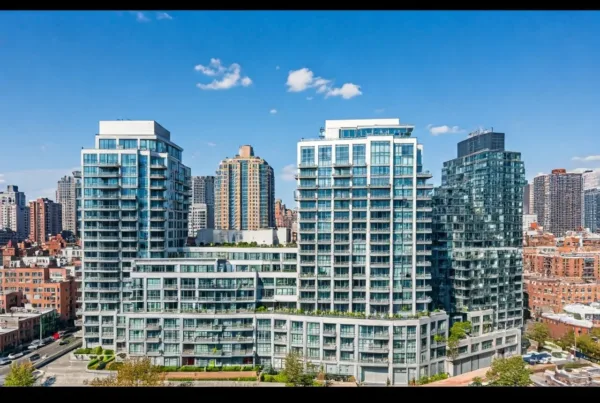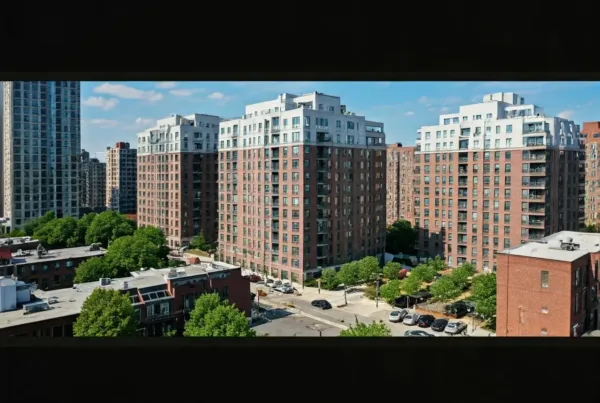Unravel the mystery of higher taxes on new builds with this comprehensive guide that will change your perspective on taxes.
Table of Contents
Introduction: Discovering the World of Taxes on New Builds
In this start, we share the excitement of learning why new houses might have a bigger tax. We will journey through the reasons and make it fun to understand for readers who are about 11 years old.
Understanding Property Taxes
First, let’s talk about what property taxes are and why they’re important. Property taxes are money that people who own houses or condos pay to the government. This money helps pay for things like schools, roads, and parks in our neighborhoods. It’s like a way of giving back to make sure our community stays nice for everyone.
What are Property Taxes?
Property taxes are fees that homeowners pay to the government. These fees help fund important things in our community like schools, roads, and parks.
How Tax Can Be Different for New and Old Houses
Now, let’s talk about why new houses might have a different tax bill compared to older homes. When a new house is built, the government might see it as more valuable than an older house because it’s all shiny and brand new. The value of a house can affect how much tax you have to pay. So, even if a new house looks great, you might have to pay more in taxes because the government thinks it’s worth more money.
New Builds Excitement: Costs and Reasons
Imagine walking into a brand-new house or apartment that no one has ever lived in before. Everything is shiny and clean, and you get to decide how you want to decorate it. That’s the exciting feeling of new construction! In places like Manhattan, where new condo developments are popping up all the time, people are drawn to the idea of living in a modern, state-of-the-art building.

Image courtesy of m.facebook.com via Google Images
Why Building Brand New Means More Money
When it comes to building something new, like those sleek condos in New York City, there are a lot of additional costs that can add up. Think about all the materials needed to construct a new building – steel, concrete, glass, and so much more. These materials can be pricey, which can drive up the overall cost of the project. On top of that, hiring skilled laborers to put everything together also contributes to the higher price tag of new builds.
Breaking Down the Costs
When it comes to understanding why taxes are higher on new construction, it’s important to look at the various costs that go into building a new home or condo. Let’s break down these costs in a way that’s easy to grasp.
Materials and Labor
One of the biggest expenses when building a new home is the materials needed for construction. Think of materials like bricks, cement, wood, and pipes – all of these things cost money to buy and transport to the construction site. Additionally, skilled workers such as carpenters, electricians, and plumbers are needed to build the home, and their labor adds to the overall cost. These expenses contribute to why building a new house can be more expensive than buying an older one.
Location, Location, Location!
Have you ever heard the phrase “location, location, location”? Where a new home is built can have a big impact on its cost. For example, building a condo in a bustling city like New York can be pricier than building one in a quieter town because land in big cities is more expensive. The proximity to amenities like schools, shopping centers, and parks also affects the cost. So, when it comes to taxes, the location of a new build plays a significant role in determining how much tax is owed.
Taxes and Your Neighborhood
In bustling neighborhoods like Manhattan, new buildings can have a big impact on the area. When shiny, new houses or condos pop up, they can change how the neighborhood looks and feels. But did you know they can also affect how much taxes people have to pay?

Image courtesy of www.amazon.com · In stock via Google Images
New Buildings on the Block
Imagine walking down your street and suddenly seeing a new condo building where there used to be an empty lot. This change can bring more people to the neighborhood, more cars on the roads, and even more stores opening up. All of these additions can make the area more valuable and desirable, which can lead to higher property taxes for everyone living there.
Talk with the Town
If you ever have questions about new buildings in your neighborhood and how they might impact taxes, you can always reach out to your local town or city offices. They can help explain why taxes might be changing and give you more information about what’s happening in your area. It’s always good to stay informed!
Conclusion: Wrapping Up the Tax Talk
After exploring why new houses might come with higher taxes, it’s important to remember a few key points that we’ve covered along the way.
| Reason | Explanation |
|---|---|
| Increased Property Value | New builds are typically more expensive than older properties, leading to higher assessed property values by local governments. |
| Infrastructure Costs | New developments often require additional infrastructure such as roads, schools, and utilities, which are funded through property taxes. |
| Incentive for Growth | Higher taxes on new builds can incentivize development in areas that need growth and can help fund essential services for new residents. |
| Government Regulations | Local and state governments may have policies in place that require higher taxes on new construction projects to support urban planning initiatives. |
Property Taxes Play a Big Role
Property taxes are fees that homeowners pay to local governments to help fund things like schools, roads, and parks in their community. These taxes are based on the value of the property, so newer houses or condos, which can be more expensive to build, might have higher tax bills.
Extra Costs of Building Something New
Building a new house or condo comes with additional costs like buying materials, paying workers, and finding a good location. All of these factors can add up and contribute to why taxes might be higher on new construction compared to older homes.
Impact on Your Neighborhood
When new buildings pop up in a neighborhood, it can change the overall vibe and attractiveness of the area. This can lead to an increase in property values, which may also result in higher property taxes for residents. It’s important to stay informed about these changes and how they can affect your taxes.
By understanding these key points, you’ll have a better grasp of why taxes are higher on new builds and how they can impact your community. Remember, taxes help support the infrastructure and services in your area, so it’s essential to know why they may vary depending on the type of property you own.
Frequently Asked Questions (FAQs)
What are Property Taxes?
Property taxes are payments homeowners make to the government. These taxes help pay for things like schools, roads, and parks in our communities. The amount of tax you pay is based on the value of your property.
How Tax Can Be Different for New and Old Houses
When it comes to taxes, new houses might have higher costs than older ones. This is because new constructions can be more valuable and require more money to maintain, which can impact the tax bill.
Why Building Brand New Means More Money
Building something new can be expensive. New materials, technology, and labor all contribute to the higher cost of new construction. This increased cost can lead to higher property taxes for new builds.
Materials and Labor
Materials like wood, steel, and labor costs for construction workers all add up when building a new house. These expenses can make the overall cost of a new build higher, resulting in increased property taxes.
Location, Location, Location!
Where a new house is built can impact its value and, consequently, its property taxes. Houses in prime locations, such as bustling cities like New York, can have higher tax bills due to their desirable locations.
New Buildings on the Block
When new houses or condos are built in a neighborhood, it can change the area’s overall value. This change in value can affect the property taxes that residents in the neighborhood have to pay, especially if the new builds increase property values.
Talk with the Town
If you have questions about your property taxes or new buildings in your area, you can reach out to your local town or city offices for more information. They can help you understand why taxes might be higher on new constructions in your neighborhood.
Begin your search and start earning cash back!
Generated by Texta.ai Blog Automation







